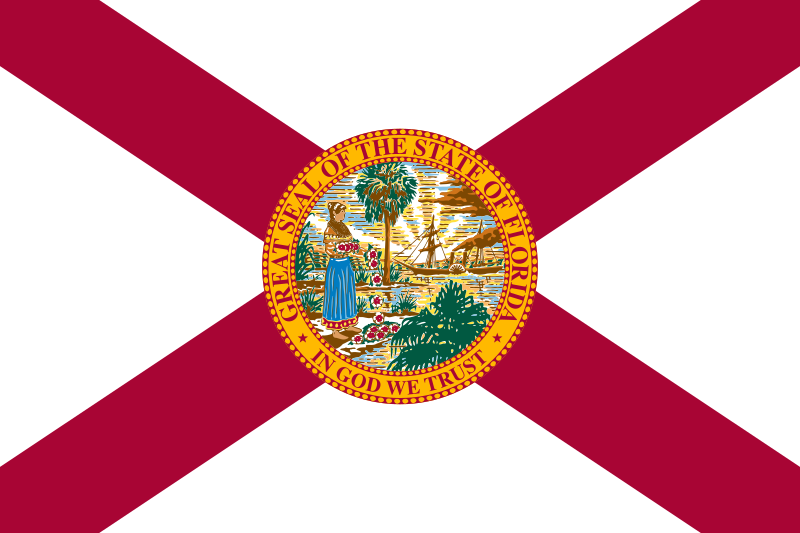On May 7, Florida Gov. Ron DeSantis (R) signed a bill—Senate Bill 1890—to set $3,000 limits on campaign contributions to committees in support of or opposition to ballot initiatives until the secretary of state certifies the measure for the ballot and assigns it a ballot position and number designation. The bill was designed to lift the contribution limits after a measure is put on the ballot.
On April 14, the Florida Senate passed the bill 23-17. Twenty-three Republicans were in favor, and 16 Democrats and one Republican were opposed. On April 26, the Florida House of Representatives passed the bill 75-40. All 75 voting Republicans were in favor, and all 40 voting Democrats were opposed.
In Florida, initiative proponents must collect signatures equal to 8% of votes cast at the previous presidential election. The requirement to put an initiative on the 2022 ballot is 891,589 valid signatures. Florida also has a signature distribution requirement, which requires that signatures equaling at least 8% of the district-wide vote in the last presidential election be collected from at least half (14) of the state's 27 congressional districts. In 2020, four initiatives qualified for the ballot in Florida. The petition drives to put those measures on the ballot cost an average of $6.7 million each, ranging from $4 million to $8.8 million. From 2016 through 2020, the average total cost of an initiative petition drive that successfully qualified an initiative for the ballot in Florida was about $5.1 million.
Nationwide, the average total cost of a successful initiative petition drive was $2.1 million in 2020. It was $1.2 million in 2018.
In Florida, the petition drives that put the four initiatives that were on the ballot in 2020 were each funded by one donor or entities that were all associated.
| Measure | Committee | Donor | Petition drive cost |
| Amendment 1 | Florida Citizen Voters | Citizen Voters Inc. | $7,864,029.60 |
| Amendment 2 | Florida for a Fair Wage | The Morgan Firm PAC | $4,007,182.47 |
| Amendment 3 | All Voters Vote, Inc. | MBF (Miguel B. Fernandez) Family Investments LTD, Miguel B. Fernandez, and Miguel B. Fernandez Revocable Trust | $6,315,623.86 |
| Amendment 4 | Keep Our Constitution Clean PC | Keep Our Constitution Clean, Inc. | $8,798,870.70 |
On May 8, the ACLU of Florida filed a lawsuit in the U.S. District Court for the Northern District of Florida arguing that SB 1890 violates First Amendment freedom of speech rights and that the state has “no significant state or public interest in curtailing debate and discussion of a ballot measure.” The lawsuit cited previous U.S. Supreme Court rulings that overturned limitations on campaign contributions for ballot measure committees, including Citizens Against Rent Control v. City of Berkeley (1981), First National Bank of Boston v. Bellotti (1978), and Buckley v. Valeo (1976). The U.S. Supreme Court has ruled in previous cases that political contributions constitute freedom of speech and cannot be limited without a compelling state interest, such as to prevent corruption and bribery. The court has also ruled that “referenda are held on issues, not candidates for public office. The risk of corruption perceived in cases involving candidate elections simply is not present in a popular vote on a public issue.”
As of May 3, 2021, Ballotpedia had tracked 197 legislative proposals concerning ballot initiatives, veto referendums, referrals, local ballot measures, and recall in 39 states in 2021 legislative sessions. At least 18 had been approved, and 20 had been defeated or had died.
Notable topics among bills introduced in 2021 sessions include supermajority requirement increases, signature requirement and distribution requirement increases, single-subject rules, pay-per-signature bans, residency requirements and other circulator restrictions, fiscal impact statement and funding source requirements, and ballot measure campaign contribution restrictions.
Additional reading:


